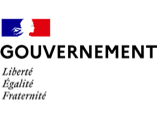Digital healthcare in Hungary
Key figures
9.6 M
inhabitants
7.3%
of GDP earmarked for healthcare spending
148
Hospital care facilities (public and private)
86
public hospitals
Hungary's healthcare system is highly centralized, with a single health insurance fund.
Since 2022, the Ministry of the Interior has managed the healthcare financing system through the National Health Insurance Fund Management Institute - Nemzeti Egészségbiztosítási Alapkezelő (NEAK). NEAK is responsible for providing, financing and monitoring health services.
Local county hospitals are responsible for the planning and management of hospital care at county level, under the supervision of the national hospital directorate.
Digitization of the healthcare system is part of the government's DJP digital strategy
The Hungarian government has already initiated the digitization of the healthcare system through its digital patient record in 2017. This record is now accessible via the national e-health infrastructure - Elektronikus Egészségügyi Szolgáltatási Tér (EESZT). This is a central IT system that ensures communication between all healthcare providers.
Complementing the national e-health infrastructure (EESZT), patients now have the option of accessing their health data via the mobile app EgészségAblak, which was developed from the app used for the Covid-19 vaccination certificate.
The Ministry of the Interior is responsible for managing and implementing digital health projects. Telemedicine is regulated by Directive 2020/559/HU, which covers the reimbursement of online prescriptions, treatments and therapies (mandatory prerequisites: identification, data protection and suitable equipment).
How do you access the Hungarian market?
1. Obtain market authorization from the National Institute of Pharmacy and Nutrition.
The main activity of the National Institute of Pharmacy and Nutrition - Országos Gyógyszerészeti és Élelmezés-egészségügyi Intézet (OGYÉI) is to provide the public with safe, effective and quality healthcare technologies, in line with regulations. OGYÉI examines notifications relating to the quality of medicines and medical devices. OGYÉI is also responsible for authorizing the manufacture and distribution of health technologies (including digital health technologies, such as software and applications).
2. Conduct a clinical study and obtain OGYÉI certification
L'OGYÉI can grant authorization for the use of CE-marked and non-CE-marked medical devices if the clinical examination is carried out in Hungary.
The Authority is authorized to act on behalf of the Hungarian member state government to ensure that the requirements of the Medical Device Regulation are met.
The Authority is authorized to act on behalf of the Hungarian Member State Government to ensure that the requirements of the Medical Devices Regulation are applied. The OGYEI is also the designating authority for the Hungarian Notified Bodies that can certify medical devices. The designating authority is a body empowered to designate and control notified bodies located in Hungary.
3. Obtain reimbursement for the medical device from the National Institute for Health Insurance Fund Management (NEAK).
Currently, there are no specific guidelines for public reimbursement of digital health technologies. Consequently, obtaining a CE mark and compliance with the MDR regulation do not give rise to a fast-track procedure for public reimbursement. It is possible to enter the Hungarian digital health market by providing solutions directly to patients (without public reimbursement) or by collaborating with private healthcare providers.
Government authorities and platforms
Guarantors of smooth functioning and cooperation in the healthcare system
Support and innovation initiatives
They bring together and facilitate the incubation of new technologies
.Training
Universities and their groups that train and support digital health innovations
Specific link
The Center for Health Technology Assessment facilitates the implementation of innovative solutions and maintains active working relationships with international biotech research companies.

